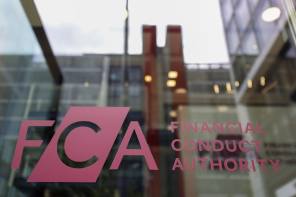

Women continue to ‘overinvest’ in cash Isas, threatening to miss out on valuable returns in the long term, an adviser has warned.
According to analysis of HMRC Isa statistics by Bowmore Financial Planning, the gender gap between the number of men and women holding cash Isas has “[failed] to narrow over the last five years”.
Data for the number of individuals subscribing to a cash Isa in the 2017-18 tax year (the latest available data) shows women accounted for more than half (55 per cent) of the total, in line with the previous years.
Men, meanwhile, represented more than half of all stocks & shares Isa holders that year, at 56 per cent (1.3m), in line with each of the preceding five years.
Bowmore Financial Planning warned cash has historically underperformed as an asset class over the medium and long term and this could continue.
It said cash has delivered average annual returns of 4.9 per cent since 1925, lagging behind global bonds (6.6 per cent), rental property (7.2 per cent), gold (7.7 per cent) and UK equities (12.4 per cent).
Bowmore warned women “overinvesting” in cash Isas meant they were overexposed to negative real returns caused by inflation, while predicting that interest rates would likely remain at their record lows “for years” to help support an economic recovery after the coronavirus.
Jill Ellicott, chartered financial planner at Bowmore Financial Planning, which is part of Bowmore Wealth Group, said: “We need to break the cycle of women being over exposed to low returning savings products.
“Cash Isas should not be relied on to create wealth long term – in a normal environment, inflation would easily outstrip the interest rates on offer which leads to the value of savings being eroded over time.
“There is arguably an advice gap here too. There is a considerable amount of research out there which suggests women do not think they get the same financial advice as men. Pre-determined biases could be resulting in some advisers pigeon-holing women in lower risk categories.”
Number of individuals subscribing to a cash ISA in the tax year
| 2017-18 | 2016-17 | 2015-16 | 2014-15 | 2013-14 | |
| Male | 2,889 | 3,678 | 4,379 | 4,359 | 4,399 |
| Female | 3,585 | 4,416 | 5,193 | 5,159 | 5,211 |
| Total | 6,474 | 8,095 | 9,572 | 9,518 | 9,611 |
Source: HMRC
Since March the base rate has been at a record low of 0.1 per cent, with average savings rates at a 13-year low, according to Moneyfacts.
Separate research from asset manager Schroders found young women (aged 18 to 34) were much more likely than any other group to be influenced by others when making a financial or investment decision.
Bowmore warned this could create a self-reinforcing cycle if the other women consulted also do not hold higher risk investments.
It said women aged 25 to 34 were the most likely to hold cash Isas of all age groups, at 23 per cent (811,000) of the total number of women with cash Isas last year (3.59m).
A report published by Fidelity last month found that women are often left playing ‘catch up’ and £100,000 worse off in later life, as men are more likely to seek financial advice in their younger years than their female counterparts.
Ms Ellicott also said: “If people, particularly women, do not fully understand their risk appetite and do not have access to the information or advice needed to make informed decisions, then we will not see the gender gap in cash Isas narrow.”
Meanwhile advisers have sounded warning bells over moving in and out of cash during the current volatile market conditions, as data from HYCM showed cash was the most common asset class currently held by investors.
chloe.cheung@ft.com



